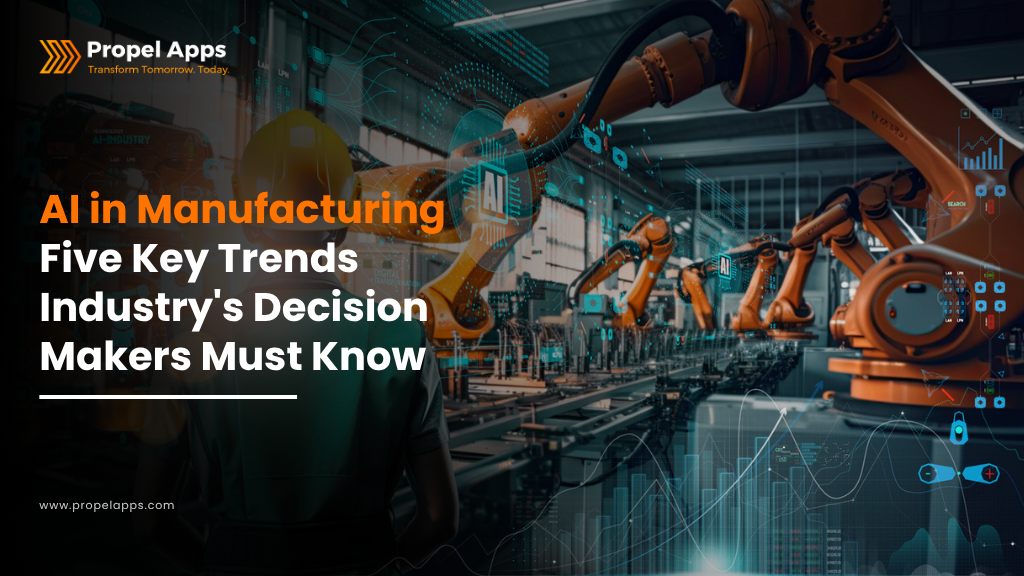
As we step into 2025, the manufacturing sector is witnessing a rapid transformation fueled by increased investments in AI in Manufacturing. Artificial Intelligence has penetrated almost every sector—personal and professional—making it essential for organizations to revisit their strategies and stay aligned with the latest advancements.

From improving decision-making across management levels to addressing challenges such as workforce safety and sustainability, AI in manufacturing is redefining industrial efficiency. This article explores five major AI trends revolutionizing the industry, particularly in AI in plant maintenance and mobile enterprise asset management solutions.
One of the biggest challenges in manufacturing is ensuring that less-experienced workers are well-prepared for unexpected issues. Companies are adopting immersive technologies like Augmented Reality (AR) and Virtual Reality (VR), powered by AI simulations, to tackle this.
Through these AI-driven training models, manufacturers can significantly enhance safety preparedness while fostering continuous learning.
AI assistants are transforming how workers perform daily tasks in manufacturing plants. These intelligent tools provide personalized guidance and operational support to ensure safe and efficient performance.
By doing so, these assistants reduce human error, ensure compliance with safety regulations, and enhance workplace efficiency—critical factors in complex manufacturing setups.
Generative AI is no longer just a buzzword—it’s delivering tangible benefits in manufacturing. More organizations are adopting it to improve real-time decision-making.
By integrating cross-functional data with contextual insights, AI assistants help workers make informed decisions instantly. This is especially important given the ongoing shortage of skilled labor.
When experts are not available at every site, empowering less-experienced workers with AI tools bridges the gap. AI in manufacturing ensures that decision-making remains consistent, data-driven, and efficient across all facilities.
As experienced professionals retire, manufacturers risk losing critical knowledge built over decades. AI-powered platforms address this challenge by capturing, updating, and transferring vital expertise across teams.
This AI in plant maintenance approach helps organizations retain institutional knowledge while keeping operations aligned with best practices.
One of the most impactful benefits of AI in manufacturing is predictive safety management. AI systems analyze data from sensors, wearables, and maintenance logs to identify potential issues before they become critical.
This proactive strategy—known as predictive maintenance—replaces traditional reactive maintenance. It:
Over time, predictive AI builds a safer, more agile, and cost-effective industrial environment.
AI is reshaping the manufacturing workplace culture. Organizations that adopt AI-powered systems can boost productivity, safety, and decision-making.
If you’re considering this shift, explore an AI-powered mobile maintenance solution like the one offered by Propel Apps. It aligns with modern technological trends while delivering high value for your investment.
This mobile enterprise asset management solution is easy to adopt across all workforce levels—from C-suite executives to technicians—helping teams:
To learn more about how this solution can modernize your maintenance operations, schedule a free demo with Propel Apps today.
Industrial AI is evolving rapidly, and 2025 marks a pivotal year for AI in manufacturing. From bridging workforce knowledge gaps and improving safety to advancing predictive maintenance, AI is driving efficiency at every level.
Now is the right time for organizations to embrace this transformation. Adopting an AI-powered mobile maintenance solution ensures your teams—managers, technicians, and executives—can automate tasks, improve accuracy, and operate efficiently in an AI-driven world where safety and productivity take center stage.
